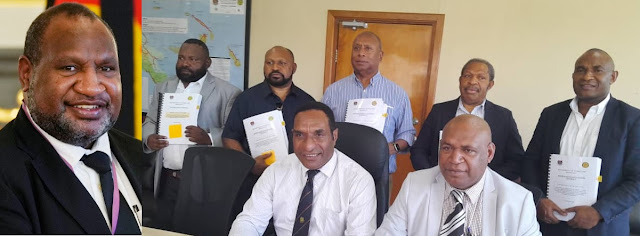Harnessing the full power of community investments
Mathew Murphy
IN SEPTEMBER, Origin Energy's Grant King announced a plan to harness the resource from Papua New Guinea's Purari River to generate 1800 megawatts of hydro power that would be shared between PNG and Australia.
It is a project that was investigated 30 years ago but abandoned as impractical due in part to the electricity that would have been lost along the transmission line.
Analysts have labelled the multibillion-dollar plan ''ambitious'' but King says that technically it can now be achieved with little fuss. However, there is an acknowledgment from Origin that building the project in PNG may prove the most ''ambitious'' part.
As projects like the $US15 billion ($A15.2 billion) Exxon Mobil-led PNG LNG development have already done, Origin has started preliminary work to determine what it can leave behind for the locals as its ''social licence'' to operate.
As Newmont Mining's former president Pierre Lassonde said, ''You don't get your social licence by going to a government ministry and making an application or simply paying a fee … It requires far more than money to truly become part of the communities in which you operate.''
It is something that Origin has already recognised. It has decided to joint-venture with PNG Sustainable Development Program, the $1 billion body responsible for overseeing aid and income-generating programs across the country.
SDP, chaired by Professor Ross Garnaut, was established after the environmental disaster caused by tailings originating from BHP Billiton's Ok Tedi copper-gold mine in the 1990s.
While there has recently been criticism of what SDP has managed to achieve after almost a decade, the program's participants have argued that it is continuing to fulfil its charter. That is: ''to improve basic infrastructure and services that are critical for economic development in a sustainable way'' and to ''invest in sustainable economic activities that will raise household incomes and empower local communities to participate in sustainable development''.
Carl McCamish, Origin's executive general manager of corporate development, says the company is comfortable with the partnership, which has committed to make power available for local townspeople along the Purari River.
''Origin intends to make other social investments, but we will talk with local communities about their needs rather than going in with preconceptions,'' he said. ''Access to power and improved local infrastructure would also, of course, allow better provision of basic health, education and other social services by government and others.''
Putting aside the cost and viability of the Purari project, Credit Suisse analyst Sandra McCullagh says getting the locals onside and managing age-old tribal conflicts could be an issue in bringing the project to commercialisation.
Peter Botten, managing director of Oil Search, which has operated in PNG since 1929, says that is why the community development team is the biggest unit in his company.
''We go to our community affairs people first because without their support in the field you don't have a stable operation,'' he said. ''There are always unexpected issues which can get in the way, which is why you really have to be embedded in the community.''
Botten says landowner agreements, like the one struck for the PNG LNG joint venture, should be steeped in the United Nations' Millennium Development Goals.
''We have a comprehensive plan in place to involve the community, initially through equity in the projects, which gives them a cheque every month, involving them in landowner companies and helping those companies build their capacity as well as receiving contracts from the projects,'' Botten said.
Those benefits from the 6.6 million tonne-a-year PNG LNG project, according to economic consultants ACIL Tasman in 2008, would provide an estimated $US31.7 billion in ''total direct cash flow to the PNG government and landowners from the LNG project'' over its 30-year life.
That figure is somewhat conservative given that it factors in a low oil price and does not include the project's lift in total capacity.
Exxon Mobil spokesman Miles Shaw says that in the second quarter of this year the PNG LNG project spent more than $US170 million with local companies for construction goods and services.
''Even though we are in the early stages of project execution, the country is experiencing the benefit of our investment,'' he said. ''Through our contractors, we are employing 3000 PNG citizens in this early activity. This number represents nearly 80 per cent of the total current workforce.''
He says consultations with landowners were conducted for many years before it was able to sign the Umbrella Benefits Sharing Agreement in May last year.
For Origin to have its full technical feasibility study done by 2012, it knows it needs to make substantial progress in building a strong relationship with the community by then. Mr McCamish says that is why the joint venture has already started unofficial talks with locals.
''As an Australian company that has operated in PNG for some time, Origin understands it is important that a project like this provide sustainable long-term benefits not just for our customers and shareholders but also for Papua New Guinea,'' he said. ''This is also very important for our partner SDP.''
While the social licence to operate is largely intangible, and therefore difficult to measure, the market believes the success or failure of Origin's Purari project could largely depend on it.
IN SEPTEMBER, Origin Energy's Grant King announced a plan to harness the resource from Papua New Guinea's Purari River to generate 1800 megawatts of hydro power that would be shared between PNG and Australia.
It is a project that was investigated 30 years ago but abandoned as impractical due in part to the electricity that would have been lost along the transmission line.
Analysts have labelled the multibillion-dollar plan ''ambitious'' but King says that technically it can now be achieved with little fuss. However, there is an acknowledgment from Origin that building the project in PNG may prove the most ''ambitious'' part.
As projects like the $US15 billion ($A15.2 billion) Exxon Mobil-led PNG LNG development have already done, Origin has started preliminary work to determine what it can leave behind for the locals as its ''social licence'' to operate.
As Newmont Mining's former president Pierre Lassonde said, ''You don't get your social licence by going to a government ministry and making an application or simply paying a fee … It requires far more than money to truly become part of the communities in which you operate.''
It is something that Origin has already recognised. It has decided to joint-venture with PNG Sustainable Development Program, the $1 billion body responsible for overseeing aid and income-generating programs across the country.
SDP, chaired by Professor Ross Garnaut, was established after the environmental disaster caused by tailings originating from BHP Billiton's Ok Tedi copper-gold mine in the 1990s.
While there has recently been criticism of what SDP has managed to achieve after almost a decade, the program's participants have argued that it is continuing to fulfil its charter. That is: ''to improve basic infrastructure and services that are critical for economic development in a sustainable way'' and to ''invest in sustainable economic activities that will raise household incomes and empower local communities to participate in sustainable development''.
Carl McCamish, Origin's executive general manager of corporate development, says the company is comfortable with the partnership, which has committed to make power available for local townspeople along the Purari River.
''Origin intends to make other social investments, but we will talk with local communities about their needs rather than going in with preconceptions,'' he said. ''Access to power and improved local infrastructure would also, of course, allow better provision of basic health, education and other social services by government and others.''
Putting aside the cost and viability of the Purari project, Credit Suisse analyst Sandra McCullagh says getting the locals onside and managing age-old tribal conflicts could be an issue in bringing the project to commercialisation.
Peter Botten, managing director of Oil Search, which has operated in PNG since 1929, says that is why the community development team is the biggest unit in his company.
''We go to our community affairs people first because without their support in the field you don't have a stable operation,'' he said. ''There are always unexpected issues which can get in the way, which is why you really have to be embedded in the community.''
Botten says landowner agreements, like the one struck for the PNG LNG joint venture, should be steeped in the United Nations' Millennium Development Goals.
''We have a comprehensive plan in place to involve the community, initially through equity in the projects, which gives them a cheque every month, involving them in landowner companies and helping those companies build their capacity as well as receiving contracts from the projects,'' Botten said.
Those benefits from the 6.6 million tonne-a-year PNG LNG project, according to economic consultants ACIL Tasman in 2008, would provide an estimated $US31.7 billion in ''total direct cash flow to the PNG government and landowners from the LNG project'' over its 30-year life.
That figure is somewhat conservative given that it factors in a low oil price and does not include the project's lift in total capacity.
Exxon Mobil spokesman Miles Shaw says that in the second quarter of this year the PNG LNG project spent more than $US170 million with local companies for construction goods and services.
''Even though we are in the early stages of project execution, the country is experiencing the benefit of our investment,'' he said. ''Through our contractors, we are employing 3000 PNG citizens in this early activity. This number represents nearly 80 per cent of the total current workforce.''
He says consultations with landowners were conducted for many years before it was able to sign the Umbrella Benefits Sharing Agreement in May last year.
For Origin to have its full technical feasibility study done by 2012, it knows it needs to make substantial progress in building a strong relationship with the community by then. Mr McCamish says that is why the joint venture has already started unofficial talks with locals.
''As an Australian company that has operated in PNG for some time, Origin understands it is important that a project like this provide sustainable long-term benefits not just for our customers and shareholders but also for Papua New Guinea,'' he said. ''This is also very important for our partner SDP.''
While the social licence to operate is largely intangible, and therefore difficult to measure, the market believes the success or failure of Origin's Purari project could largely depend on it.







Comments
Post a Comment
Please free to leave comments.